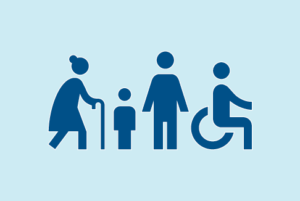President Trump last week released a blueprint that identifies immediate actions and further opportunities within federal payment programs to lower drug prices. In releasing the blueprint, officials from the Department of Health and Human Services identified four major goals:
- Addressing the increase in list prices of drugs
- Maximizing the potential of government programs and private payers to leverage negotiating power
- Tackling high out-of-pocket costs
- Ensuring the practices of foreign markets are not disadvantaging American innovation
The Blueprint to Lower Drug Prices and Reduce Out-of-Pocket Costs calls for greater transparency of drug prices, better informing consumers about prescription drugs, promoting the use of generic drugs and experimenting with value-based payment through the Center for Medicare & Medicaid Innovation. CHA is reviewing the blueprint’s policy proposals and anticipates additional rulemaking and subregulatory guidance to be released over the coming weeks. Today, the department released a request for information seeking stakeholder feedback to “to help shape future policy development and agency action.” Future member engagement on these important policy issues is likely.
The skyrocketing price of prescription drugs places a significant financial burden on hospitals and challenges them to make difficult decisions about how to allocate limited resources. Despite progressive state legislation enacted in California, hospitals are eager to explore additional policy avenues that will provide needed relief. Recently enacted state legislation — including Senate Bill 17 (Chapter 603, Statutes of 2017), which took effect in January — requires drug companies to give major purchasers 60 days’ notice of significant increases and to begin publicly reporting data in 2019; these laws are currently in litigation. In addition, Assembly Bill 265 (Chapter 611, Statutes of 2017) prohibits the use of discounts for brand-name drugs when a lower-cost, therapeutically equivalent drug is available.
CHA will continue to urge federal policymakers to reject shortsighted policies — such as reducing benefits of the 340B Drug Pricing Program — and looks forward to working with federal policymakers on common-sense policies that address rising drug prices and the resulting pressure placed on the budgets of hospitals and patients alike.

